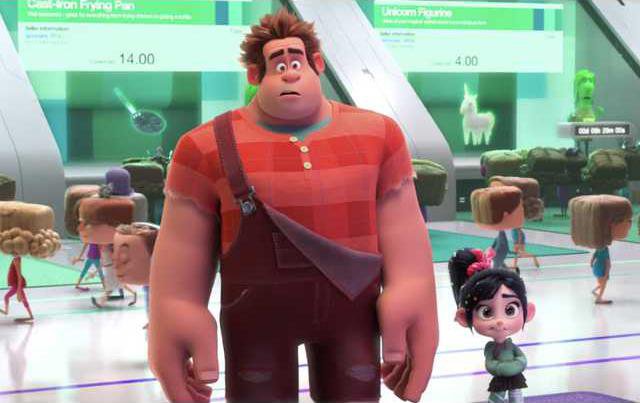The sequel to Wreck-it Ralph just dropped its trailer and its goal is to break the internet.
The teaser trailer for Ralph Breaks the Internet: Wreck-It Ralph 2 shows the titular character voiced by John C. Reilly surfing through the world wide web, hoping to find a way to save his friend Vanellope von Schweetzs (Sarah Silverman) video game.
The two characters will battle against algorithms (including one called Yesss, voiced by Taraji P. Henson) and even Disney Princesses voiced by the actual cast members of the original films, according to Mashable.
The new film will hit theaters on Nov. 21.
According to The Verge, the new film will follow these characters dealing with websites like IMDb, eBay and even pop-up ads and clickbait headlines.
Like the first film, theres a nice undercurrent of satire to what they encounter: pictures of kittens and the gameplay of a childrens app that goes terribly wrong, according to The Verge.
As the Deseret News previously reported, Disney dropped the films first teaser video back in March of last year.
Director Rich Moore said the movie hopes to show off the internet in a new and exciting way.
To take these characters we love and have them enter the enormous world of the internet has given us so much to explore, Moore said in a statement, according to E! News. Our production team has been hard at work designing a world that takes something we all think we know the internet but shows it in a whole new, imaginative way.
The teaser trailer for Ralph Breaks the Internet: Wreck-It Ralph 2 shows the titular character voiced by John C. Reilly surfing through the world wide web, hoping to find a way to save his friend Vanellope von Schweetzs (Sarah Silverman) video game.
The two characters will battle against algorithms (including one called Yesss, voiced by Taraji P. Henson) and even Disney Princesses voiced by the actual cast members of the original films, according to Mashable.
The new film will hit theaters on Nov. 21.
According to The Verge, the new film will follow these characters dealing with websites like IMDb, eBay and even pop-up ads and clickbait headlines.
Like the first film, theres a nice undercurrent of satire to what they encounter: pictures of kittens and the gameplay of a childrens app that goes terribly wrong, according to The Verge.
As the Deseret News previously reported, Disney dropped the films first teaser video back in March of last year.
Director Rich Moore said the movie hopes to show off the internet in a new and exciting way.
To take these characters we love and have them enter the enormous world of the internet has given us so much to explore, Moore said in a statement, according to E! News. Our production team has been hard at work designing a world that takes something we all think we know the internet but shows it in a whole new, imaginative way.








